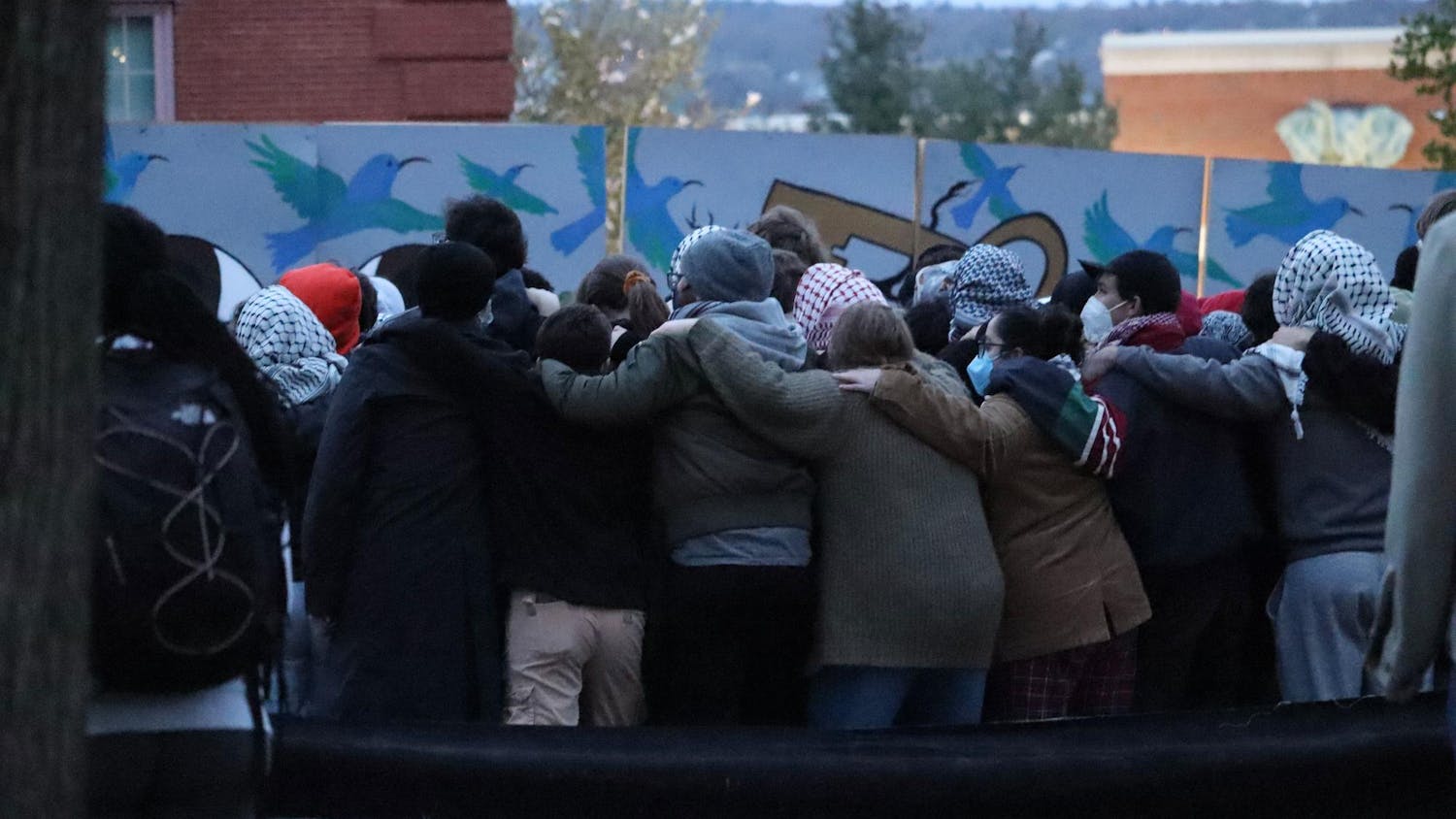The Women's Center hosted staff, professors and students on Friday for its 2018 Symposium on Gender and Culture.
The symposium’s theme, “Metaphors of the Body,” explored the body’s role as an analogy for larger, universal forces.
“I was thinking about … how our bodies carry historic trauma and how we carry the impacts of larger forces like climate change, displacement … and how our bodies are also sites of resilience and also healing,” Women’s Center Graduate Assistant Koko Li said.
Women’s Center Director K. Martinez explained the importance of the symposium for the Tufts community and the timeliness of the theme.
“The symposium is a reflection of our women, and ... every year it’s cool that the Women’s Center has created this tradition where we’re asking folks to reflect on our moment," they said. "And in terms of a Women’s Center and this political moment right now, [it is important to talk] about the body and who has autonomy over our bodies and women’s bodies and transgender bodies.”
Martinez said before the event that the Women’s Center designed the symposium to serve as both an exchange of ideas and a convivial gathering.
“We really focused on ‘What does symposium even mean?’… If you look at the definition, it’s a two-parter: one is an exchange of ideas, and the second meaning that we really liked is [a] ‘convivial’ gathering and joyful and fun … and so we want a space where folks can share ideas … We will have art, we will have film, we will have discussions," they said. "We wanted to make sure it was broad and fun.”
Li added that this approach ensured that the symposium explored bodily experience in all its facets.
“You can’t really convey a lot of what your body’s experiencing through just words or theorizing, so we’re really excited about having a lot of art and ... movement and more creative ways of expression,” they said.
Martinez said the diversity of the symposium's presenters reflected the openness that the Women’s Center staff wanted.
The symposium’s morning schedule featured “Movement Session," led by senior Amanda Ng Yann Chwen; “Reading from The Body Papers,” led by English professor Grace Talusan; “Women as Wives and Ghosts: Spirit Possession in Indian Psychiatry and Film,” led by senior Priyanka Padidam; and “Anatomy and Personhood: From Lobotomy to Pharmaceuticals,” led by junior Zoe Schoen.
The afternoon schedule included “Sexual Violence and Quranic Resources for Healing,” led by Muslim Chaplain Celene Ibrahim; “The Body as a Midrash: Silence, Judaism, and Gender,” led by senior Merissa Jaye; “Finding New Old Selves: Being Jewish and Genderqueer,” led by senior Emma Youcha; and “Logged: A Body Manifesto,” led by senior Hannah Shevrin.
The Women’s Center selected its presentations through an open call for submissions, according to Martinez. This open call resulted in many speakers who wished to speak about the intersectionality between the body and faith.
“I’ve found in the Qur’an wisdom and insights for thinking through questions raised by the #MeToo movement," Ibrahim told the Daily in an email. "My presentation is based partly on my dissertation work with the Qur'an and partly [on] my experience as a chaplain, at times working with issues related to sexual trauma. It's important, I think, to approach these very complicated issues from both spiritual and intellectual angles, and to do so in community … It can be very helpful to have exposure to how different faith communities understand issues related to sexuality.”
Talusan spoke about the body’s autonomy, explaining that being mindful of the body is key to achieving progress and peace.
"You have to know what you need," she said. "I never even asked myself the question, 'What do I need at this moment?' until very recently. So once you answer that question you might find out what you need.”
In an interview with the Daily, Talusan emphasized the importance of community for acceptance of one’s own identity and body.
“We need spaces where we can focus on marginalized voices and celebrate them too … I always think that no matter where you are, you try to find your people," she said. "There are communities here [at Tufts], where you can find … people who have similar beliefs, desires, missions, things they want to work on, whether that’s art or political movements … [but] you have to make an effort to find people … [and] I think it’s worth it.”
Li explained that the Women’s Center looked to facilitate this type of community and encourage greater awareness of the body through the symposium.
“I hope that folks are able to think more about their own relationship to their body and think about all the things that they carry in their own bodies," they said. "Hopefully, folks can be more grounded and present in their bodies as a result of this."
Women’s Center discusses bodies, sexuality in annual symposium

Bulletin board at the Women's Center Symposium on Feb. 23.





